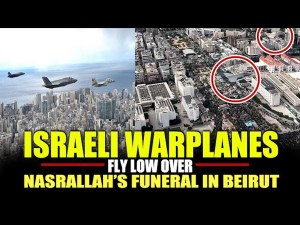The government of Lebanon, eagerly seeking an exit from decades of on-and-off warfare, is placing hopes in the elimination of a single word that had been included in government action programs for two decades. The word is “resistance.”
The word had been formally paired with “army” and “people” in government statements to guide foreign and domestic policy. It had camouflaged the acceptance by chronically weak governments of frequent freelance belligerence against Israel by Hezbollah, the country’s Shiite Muslim militia.
Since its creation in the 1980s, Hezbollah evolved into a powerful component of the so-called “Axis of Resistance,” sponsored by Iran. The axis included Syria and Hamas, the Palestinian Islamic faction that ruled the Gaza Strip for two decades.
In the wake of Hamas’s October 7, 2023, invasion of southern Israel and subsequent Israeli retaliatory warfare, this militant quartet fell apart:
- Israel’s army and air force first crushed Hamas.
- Then the Israelis invaded south Lebanon, the Hezbollah heartland from which the militia launched missiles into Israel in support of Hamas. Among the thousands of Hezbollah dead was its leader Hassan Nasrallah, killed by a rain of bombs on his home in Beirut.
- Iran joined the war by rocketing areas of Israel. Israeli air power struck back and wiped out Iran’s air defense systems in short order.
- As a bonus for Tel Aviv, Muslim rebels overthrew the government of Syrian President Bashar al-Assad last month in a lightning military campaign.
In short, the Axis of Resistance, which seemed to have been a perpetual threat, crumbled.
It may be too early to say that Israel’s victories spell an end to Middle East conflicts, but Lebanon has had enough.
The altered regional landscape opened the way for the Lebanese government, which sat on the sidelines of the war, to assert military control over the country’s borders. In addition, it expects to end Hezbollah’s ability to wage freelance military campaigns abroad.
“With Hezbollah having suffered a devastating defeat in its defeat in its conflict with Israel, and now having lost its strategic outpost in Syria after the fall of the Assad regime, the party’s ability to impose its will on the rest of Lebanese society has been crippled,” wrote Michael Young, editor of Diwan, a blog of the Carnegie Institute’s Middle East Center.
The current government is headed by President Joseph Aoun, who is a former army general, and Prime Minister Nawaf Salam, a former judge on the International Court of Justice.

The government presents its policy statement to parliament for approval February 25. Theoretically, legislative acceptance of the roadmap would open the way to demand that Hezbollah disarm and not act independently as a military force inside Lebanon or abroad.
Will erasing a word be enough? Hezbollah loyalists say no. Hassan Fadlallah, a Hezbollah member of parliament, criticized the government for trying to “appease” the United States and other Western supporters.
Part of the government plan is to revive Lebanon’s commitment to the United Nations’ 2006 resolution 1701, in which Lebanon was to place its defense exclusively in the hands of the armed forces and Hezbollah was to both disarm and move north of the Litani River, leaving a buffer zone south to the Israeli border. The country’s Sunni Muslim and Christian militias had disbanded in 1991.
The government has canceled a parliamentary rule that permitted Hezbollah to veto legislation if it could muster only a third of opposition members to oppose a measure.
Reviving the effectiveness of the armed forces is meant to secure not only Lebanon’s border with Israel but also – in order to block weapons and drug smuggling – the east and north frontier with Syria.
Since 1982, weapons have arrived from Iran via land as well as through the airport. Weapons traffic was long under Hezbollah control.
Neither Iran nor Hezbollah appears ready to surrender the use of Lebanon as a base to confront Israel. Na’im Qassem, Hezbollah’s current exiled leader, insists that Hezbollah is recovering from the Israeli onslaught and “the resistance continues.”
In Beirut, Mahmoud Qamati, Hezbollah’s deputy political council chief, said, “If politicians choose to submit, the resistance people reject American and Israeli humiliation and will never accept it.”
On Sunday, Hezbollah organized a massive display of popular support designed to show it is alive and ready to keep fighting. Hundreds of people, many of them allies from Iran and Yemen, marched into a Beirut stadium to attend a funeral for Nasrallah.
One other cloud hangs over Lebanon’s hope to exit the Middle East morass of violence: Israel has indefinitely postponed its pullout from southern Lebanon, where clusters of soldiers man high ground.
The move is parallel with IsraeI’s decision to keep troops in the Gaza Strip and maintain forces indefinitely inside far southern Syria. In short, while the Palestinian conflict continues, for the first time in 75 years Israel faces no effective armed opposition in the north, south, east or west.

As if to emphasize that, Israeli jets buzzed the Nasrallah funeral. Foreign minister Israel Katz, said the planes were “conveying a clear message: Whoever threatens to destroy Israel and attacks Israel – that will be the end of him. You will specialize in funerals. And we will specialize in victories.”

